“Do you mind if I ask your age?”
It’s a question that reveals one of the most misunderstood aspects of our self-presentation to others: the arbitrary number that reveals when we arrived on the planet. Some embrace it with enthusiasm, others with wisdom and introspection, but an alarming majority of us often assign shame, self-doubt and dread about chronological age.
Growing older is universally shared. Being authentic and emotionally unburdened about the number that represents our age, while embracing in full measure the opportunities we have before us, is liberating and can affect real change for ourselves and the communities in which we live.
How different might things be if we agree to make a radical shift in the way we describe people? What if instead of labels that reflect how long we’ve been around—older adult, senior, elder—we choose to lead with language that captures what we’re doing now and what we want to do in the future—volunteer, artist, enthusiast, activist, friend and mentor ? This is what I love about Oasis and the powerful work we do nationwide to celebrate and encourage adults who are learning, growing and changing the narrative about getting older.
With our 2018 Annual Report, we had the opportunity to highlight some of the innovative work that is changing the face of aging in nine communities that are home to Oasis centers. This is where our mission is most visible and meaningful. Here are just a few stories that demonstrate the scope and impact that Oasis has across the country:
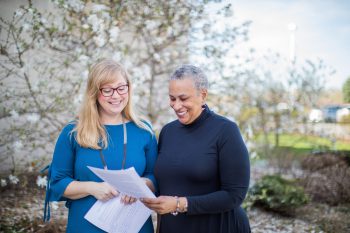
When Vivian Gibson enrolled in a creative writing class at St. Louis Oasis, she could not foresee just how far down the path toward publication she’d be in just a few years’ time.
“I’ve had two stories published and am currently working on a manuscript for a memoir scheduled for release in 2020,” says Vivian.
Humanities classes covering topics in literature, history, the arts and current events often turn newcomers into Oasis “regulars” like Vivian.
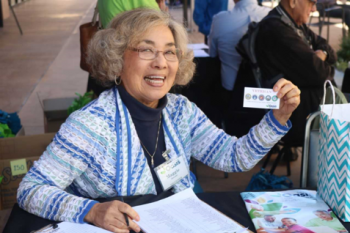
Maggie Ikezaki was pleasantly surprised when she finally decided to check out what was happening at San Diego Oasis. She found a thriving center with plenty of opportunities for growth and volunteering.
“I love when people come to Oasis for the first time and discover that it’s not just for ‘old people,’” says Maggie. “With a wide variety of offerings, there is truly something for everyone.”
Maggie takes a number of classes and is an active volunteer.
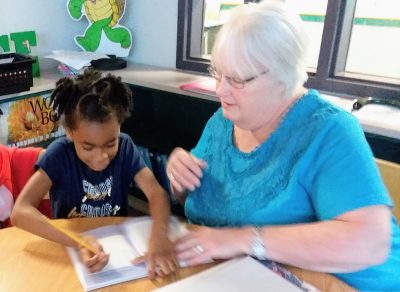
When Patty Hunter decided to become a tutor with the Oasis Intergenerational Tutoring program in Indianapolis Oasis, she had a pretty good idea of what she was getting herself into. A retired teacher’s assistant with more than 25 years of experience working with first graders, she is still pleased with the how meaningful tutoring has been.
“The moment my student walks into class, she tells her teacher that this is the best day of her week. And so, it makes it mine as well,” says Patty.
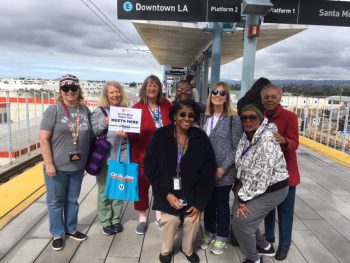
Regina Bryant had never used public transit before, but after participating in the Metro On-the-Move Riders Club with Los Angeles Oasis, she’s confident enough to show others the ropes as well.
“It’s quick and easy to do,” she says. “It’s just a matter of getting out there and trying it. The Riders Club was going so many places I’d never been before, so it was a great opportunity to explore my own city.”
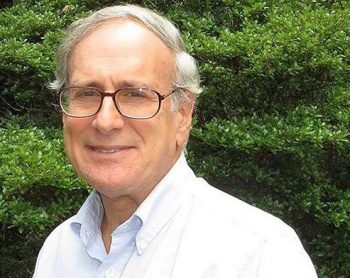
It’s the “aha” moments that keep Gary Cahn coming back to Washington Metropolitan DC Oasis. Since 2003, Gary has taught nearly 400 technology classes as a volunteer.
“There’s nothing like teaching somebody and see them ‘get it,’” he says. “It doesn’t matter if they are eight years old or 80. When that light bulb goes off and they realize what technology can do for them, it’s very rewarding.”
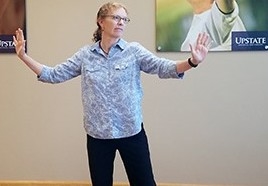
Tai Chi for Arthritis helps people improve balance, vitality, posture, even immunity.
Longtime instructor Genoa Wilson, who teaches these classes at Upstate Oasis, says it’s all about the breathing. “The focused breathing triggers a relaxation response that helps slow down our brain waves. As people progress through the classes, we’re developing a new vocabulary of movement,” she says.
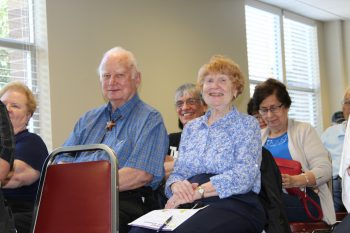
Buddy and Kay Rosene typically take at least 30 lifelong learning classes each trimester at San Antonio Oasis. Over the last 20 years, they have covered a lot of ground together, taking in everything from art to geology to old movies.
“We have such inquisitive minds and are interested in so many things,” says Kay.
Many classes are taught by instructors from local colleges and universities.
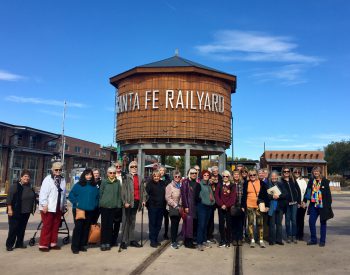
Whenever Nancy Thobe receives the latest catalog from Albuquerque Oasis, she’s eager to discover where she can go next.
“It’s like a treasure trove,” she says. Nancy discovered Oasis eight years ago, and typically signs up for two or more local trips each trimester. “I still do some exploring of the area by myself, but there are a lot of places I’m more likely to visit with a group.”
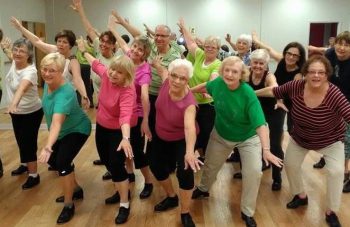
It’s hard to sit still watching the Oasis Tappers, a performance group with Rochester Oasis that keeps dancers on their toes. Members range in age from 62 to 101. Some have learned their skills through Oasis classes, and others have been dancing all their lives, like Marion Fahy.
“Dancing has been a part of my life since I was 12,” she says. “I love it. I just can’t give it up.”
Find out more about our national impact and stories from Oasis centers across the country by reading the 2018 Annual Report.

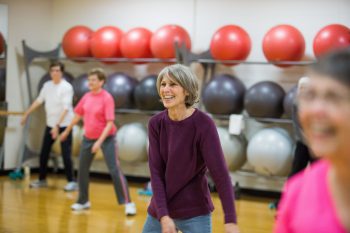
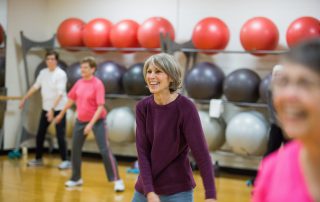
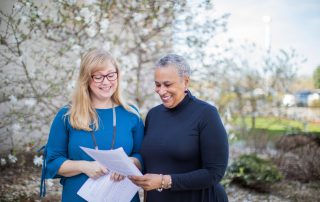
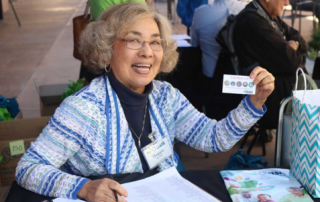
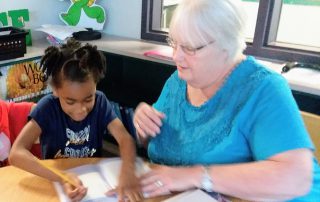
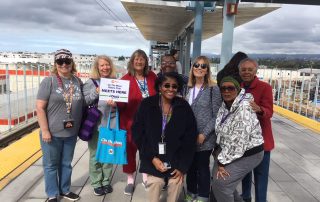
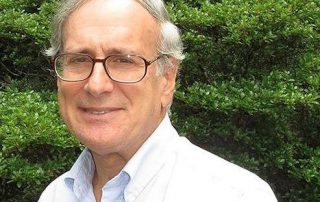
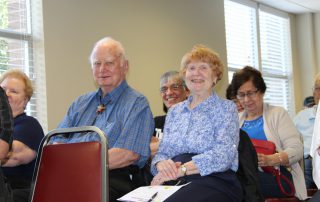
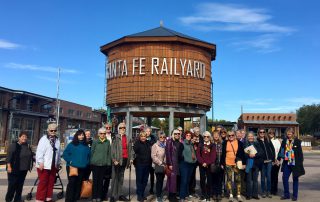
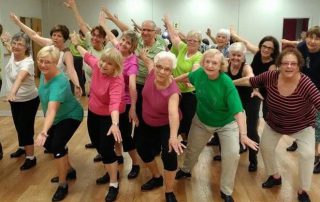
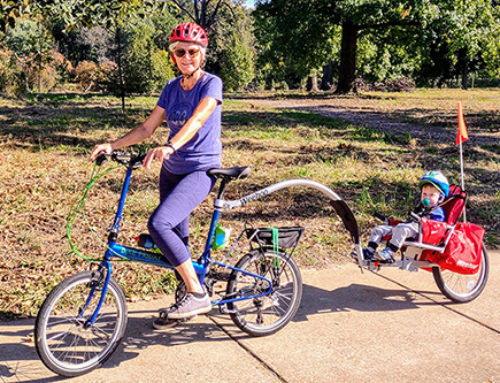
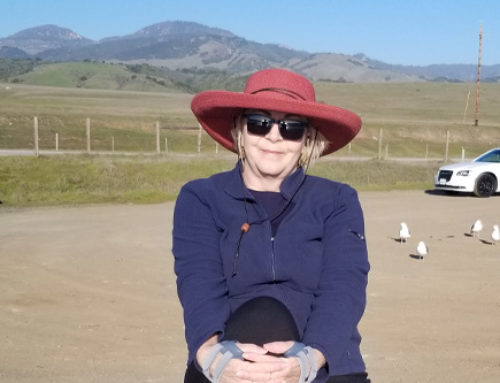
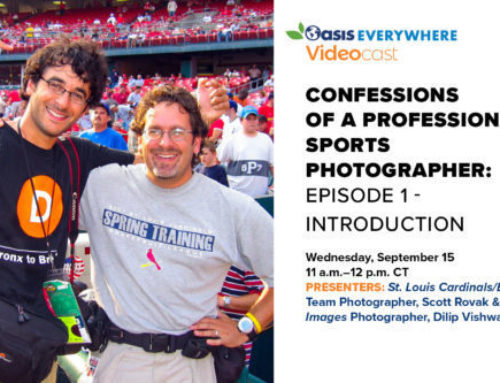

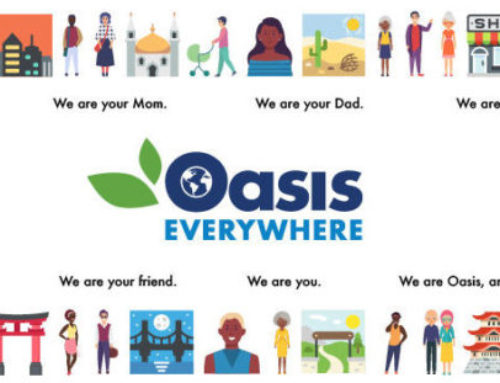
Leave A Comment
You must be logged in to post a comment.